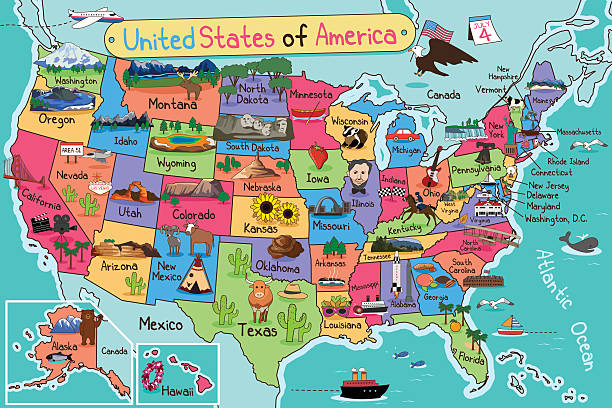According to WalletHub’s 2024 survey, certain states in the U.S. are deemed less favorable for retirement due to various factors such as affordability, quality of life, and healthcare. This article delves into the states that rank lowest as retirement destinations based on a comprehensive analysis of key indicators.

Overview of Retirement Destinations
WalletHub’s survey compared the 50 states across 46 metrics, including tax rates, cost of living, access to quality medical care, and availability of recreational activities. The resulting list highlights the states that present the most challenges for retirees, reflecting higher taxes, crime rates, and inadequate healthcare facilities.
Top 10 Worst States to Retire In
- Kentucky: Kentucky is ranked as the worst state to retire in 2024. It scores poorly across all categories, including affordability, quality of life, and healthcare. Despite its scenic beauty and historical significance, the state’s higher tax rates and lower healthcare ratings contribute to its position at the bottom of the list.
- New Jersey: New Jersey follows closely, with high tax rates and a high cost of living impacting its overall score. While the state offers a variety of amenities, these factors outweigh its benefits for retirees.
- Mississippi: Known for its cultural heritage, Mississippi ranks third due to its low affordability and inadequate healthcare services. The state’s economic challenges contribute to its position on the list.
- Rhode Island: Rhode Island’s ranking is influenced by high costs and limited healthcare facilities. Although it offers a charming environment, these factors make it less ideal for retirement.
- Oklahoma: Oklahoma faces challenges in affordability and healthcare, impacting its attractiveness as a retirement destination. Despite its low cost of living, other factors reduce its overall appeal.
- Louisiana: Louisiana ranks sixth due to high crime rates and insufficient healthcare options. The state’s unique culture is overshadowed by these critical issues.
- New York: New York, despite its vibrant culture and numerous activities, struggles with high living costs and healthcare accessibility, placing it lower on the list.
- Washington: Washington’s high cost of living and taxes contribute to its unfavorable ranking. Although the state offers beautiful landscapes and a high quality of life, these issues are significant drawbacks.
- Arkansas: Arkansas faces challenges in affordability and healthcare quality, which affects its ranking. The state’s low cost of living is mitigated by other less favorable factors.
- Illinois: Illinois rounds out the top ten worst states due to high taxes and average quality of life scores. While it provides various amenities, these factors make it less suitable for retirees.
Additional States with Lower Retirement Appeal
In addition to the top ten, several other states also present challenges for retirees:
- Hawaii: High living costs make Hawaii a less practical choice for many retirees despite its beautiful environment.
- Alaska: Alaska’s high living expenses and remote location impact its desirability as a retirement destination.
- Iowa: While affordable, Iowa’s healthcare and climate considerations may affect retirees’ quality of life.
- Kansas: Kansas faces issues with healthcare and overall quality of life, which can be significant for retirees.
- Georgia: Despite its favorable climate, Georgia’s issues with healthcare and affordability place it lower on the list.
- New Mexico: New Mexico’s low healthcare ratings and economic factors affect its attractiveness as a retirement destination.
- Texas: Texas, known for its affordability, struggles with healthcare quality and overall living conditions.
- Nevada: Nevada’s high living costs and limited healthcare facilities impact its retirement appeal.
- Connecticut: Connecticut’s high taxes and cost of living overshadow its quality of life benefits.
- Indiana: Indiana faces challenges in healthcare and quality of life, affecting its desirability for retirees.
- Vermont: Vermont’s high cost of living and limited healthcare options influence its retirement ranking.
- Oregon: While offering a high quality of life, Oregon’s cost of living and healthcare accessibility are concerns.
- Maryland: Maryland’s high taxes and living costs affect its attractiveness as a retirement destination.
- Tennessee: Tennessee’s issues with healthcare and overall affordability impact its ranking for retirees.
- West Virginia: West Virginia faces economic challenges and healthcare issues, making it a less favorable retirement location.
Conclusion
Choosing a retirement destination involves evaluating various factors, including affordability, quality of life, and healthcare access. While the states listed may present challenges, each offers unique aspects that might appeal to certain retirees. Prospective retirees should carefully consider these factors and their personal preferences to find a location that best suits their needs and lifestyle.